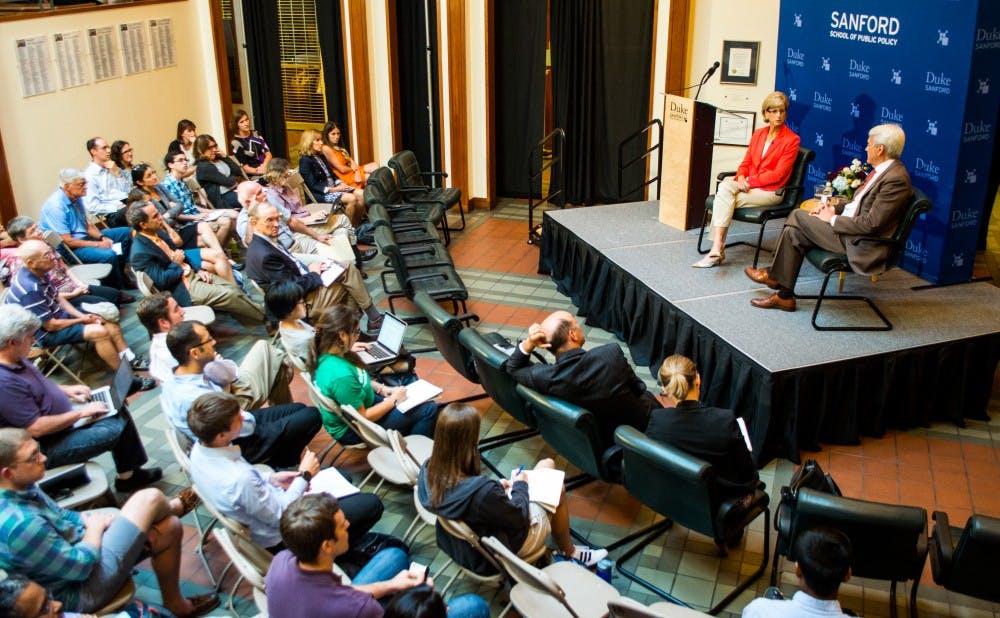Christine Whitman, former governor of New Jersey and Environmental Protection Agency administrator when President George W. Bush was in office, discussed the importance of nuclear energy at the Sanford School of Public Policy Wednesday.
As part of a discussion moderated by William Reilly—a former EPA administrator and chair of the Nicholas Institute Board of Advisors—Whitman and Reilly suggested that nuclear energy is critical to a renewable energy plan that aims to reduce carbon emissions.
Referring to the Paris Climate Agreement, in which many industrialized nations agreed to the goal of reducing their carbon footprints, Whitman said that this challenge cannot be tackled “by ignoring one of the major non-carbon producing energy sources—nuclear.”
She noted that nuclear energy represents 63 percent of the clean energy and about 19 percent of overall energy today.
Furthermore, Whitman explained that clean energy is related to human health.
“In 2013, over 91,000 people died from bad air quality related complications such as heart attacks, asthma, cancer and all the things that go with dirty air,” she said. “That’s almost three times as many people who died in car accidents that year.”
If nuclear energy were eliminated from our energy portfolio today, Whitman added, carbon emissions would be 27 percent higher.
However, Reilly pointed out that the U.S. “has been losing reactors at a regular state, dropping from 104 reactors to 93 reactors, and set to lose four to six more in the next few years.”
Suggesting economic and political factors for this trend, Whitman explained that the cost of building a nuclear reactor is not competitive with low cost of natural gas and fracking.
Liz Finnegan, a Master's of Business Administration student at the Fuqua School of Business and an attendee, added to the conversation with her summer experience at Pacific Gas & Electric company.
“They are closing their plant in Diablo Canyon because of how hard it was to re-permit,” she said.
Although having operated for 30 years, the cost to re-permit the Diablo Canyon plant—which produces nuclear energy—was not worth it, Finnegan explained.
“And that kind of thing cannot happen if you want to move forward with nuclear,” she said.
Whitman noted that regulators and legislators need to understand that clean energy is a real issue and realize the value nuclear energy provides to the American economy and environment. As co-chair of the Clean and Safe Energy Coalition, she said that she strives to educate the community and legislators so that they can decide what nuclear energy policy is right for them.
Brian Murray, director of the Duke University Energy Initiative, said that Duke’s role in the clean energy initiative “is to completely embrace the notion that energy solutions aren’t just scientific, they’re not just technical, they’re economic, business and sociological, and we work on all of those things at Duke.”
Get The Chronicle straight to your inbox
Signup for our weekly newsletter. Cancel at any time.

